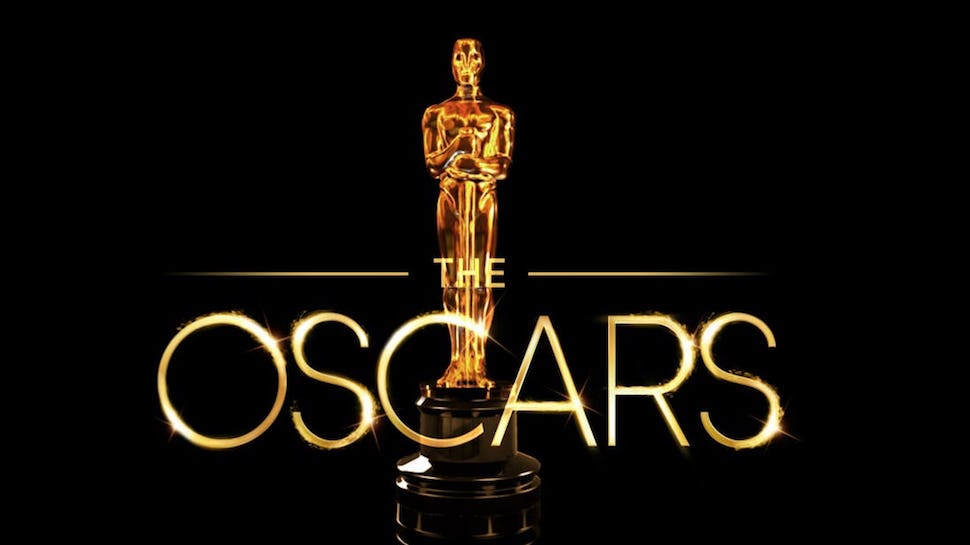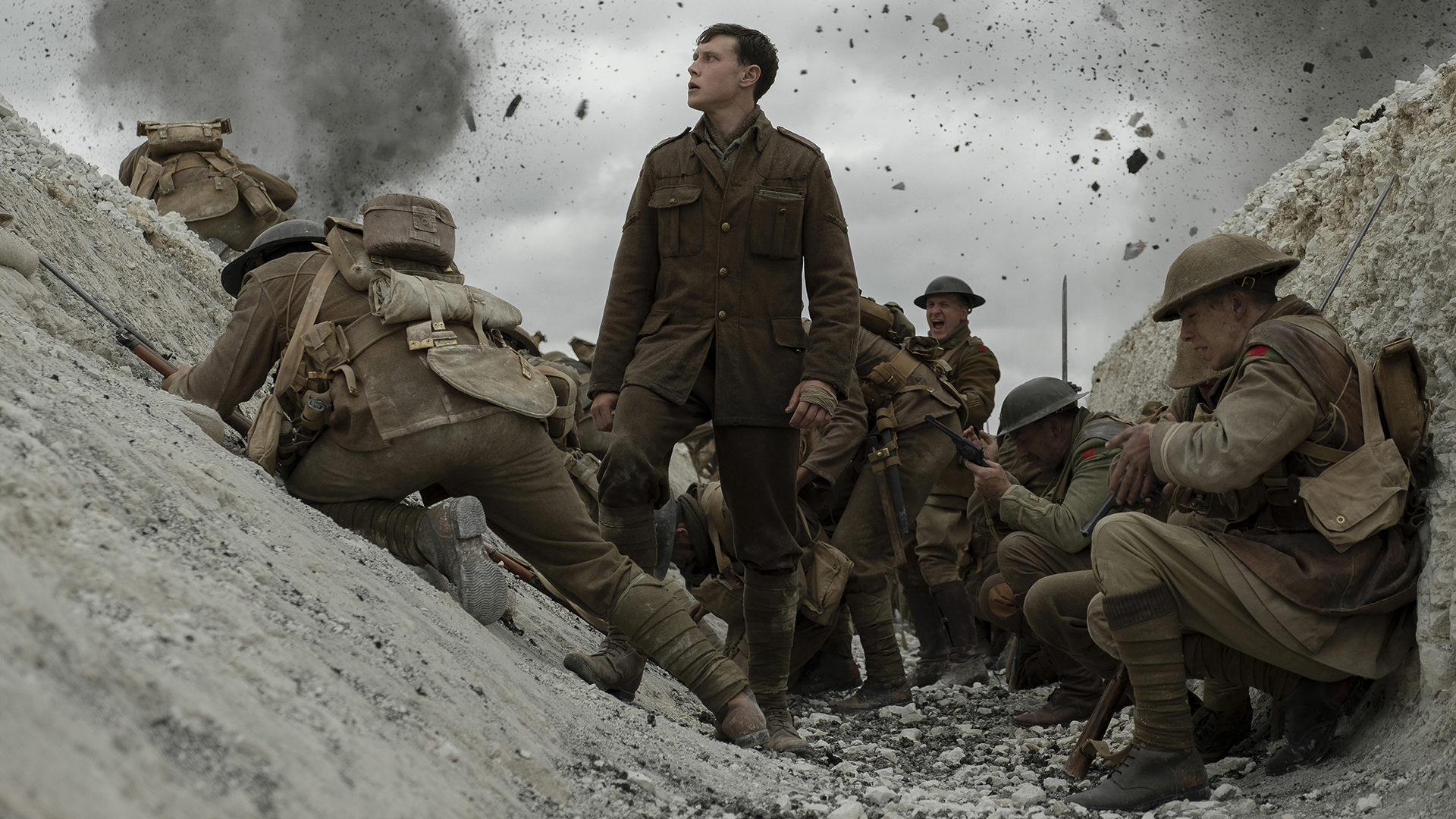Any year as strong a 2019 is going to see its share of snubs
in the Oscar race because there are just too damn many worthy films and
performances. It’s a blessing, really. But we will complain anyway.
First, though, we’ll celebrate Scarlet Johansson for finally
getting a nomination, and then getting a second. She nabbed a nom in both lead
and supporting categories this year. Antonio
Banderas and Cynthia Erivo nab their first Oscar nominations—Banderas waited
just a tad longer for the recognition, but both are well deserved. Also
thrilled to see Parasite clean up, JoJo Rabbit and 1917
collecting so much love.
But where was Uncut
Gems? Not a peep for Adam Sandler’s career-turning performance or for the
Safdie Brothers writing, direction or film. Same for Awkwafina and
writer/director Lulu Wang’s The Farewell, both films that deserved a
spot.
The most obvious snubs belong to Jennifer Lopez, whose
brilliant turn in Hustlers was forgotten, Frozen 2, which didn’t garner an animation nomination (although
we’re OK with that), and Apollo 11, which went unnoticed in the
documentary category.
Here’s what we did get.
Best Film
Ford v Ferrari
The Irishman
Jojo Rabbit
Joker
Little Women
Marriage Story
1917
Once Upon a Time in
Hollywood
Parasite
Surprises
Knives Out struck us as a clear contender for Best
Picture. It would be great to fill the list out to its full capacity of 10,
include Knives Out and either The
Farewell or Uncut Gems.
Best Director
Martin Scorsese for The Irishman
Todd Philips for Joker
Sam Mendes for 1917
Quentin Tarantino for Once Upon a Time in Hollywood
Bong Joon Ho for Parasite
Surprises
Greta Gerwig needed to be here for Little Women, not just because this is once again the All Male Olympics, but because she deserves to be here. We’d give her Phillips’s spot.
Best Performance by a Lead Actress
Cynthia Erivo for Harriet
Scarlett Johansson for Marriage Story
Saoirse Ronan for Little Women
Charlize Theron for Bombshell
Renee Zellweger for Judy
Surprises
Awkwafina, who won the Golden Globe and showed remarkable
skill, vulnerability and range in The
Farewell deserved a slot as did Lupita Nyong’o for Us. We’d have put
them in over Theron and Erivo. It would not have made us unhappy to see Tessa
Thompson or Elisabeth Moss make the list for Little Woods and Her
Smell, respectively, but that would have been asking a lot.
Best Performance by a
Lead Actor
Antonio Banderas for Pain and Glory
Leonardo DiCaprio for Once Upon a Time in Hollywood
Adam Driver for Marriage Story
Joaquin Phoenix for Joker
Jonathan Pryce for The Two Popes
Surprises
Hooray for Antonio Banderas. It’s about damn time.
I don’t know that we’re surprised the Academy voters didn’t go with Adam Sandler, but we’re definitely disappointed. He should have had Pryce’s spot. It’s a tough, stacked year for lead actor, which is why glorious work by Robert Pattinson (The Lighthouse), Eddie Murphy (Dolemite Is My Name) and Kelvin Harrison, Jr. (Luce) went unnoticed. More surprising are snubs for DeNiro (The Irishman), Taron Edgerton (Rocketman) and Christian Bale (Ford v. Ferrari), but again, this category is loaded.
Best Performance by
an Actor in a Supporting Role
Tom Hanks for A Beautiful Day in the Neighborhood
Anthony Hopkins for The Two Popes
Al Pacino for The Irishman
Joe Pesci for The Irishman
Brad Pitt for Once Upon a Time in Hollywood
Surprises
Who are those guys? Never heard of them.
If we had our way, Song Kang Ho’s incandescent turn as
patriarch in Parasite would have edged out Hopkins, but the biggest let
down is Willem Dafoe, whose insane wickie in The Lighthouse deserved a
spot.
Best Performance by an
Actress in a Supporting Role
Kathy Bates in Richard Jewell
Laura Dern in Marriage Story
Scarlett Johansson in Jojo Rabbit
Florence Pugh in Little Women
Margot Robbie in Bombshell
Surprises
If you’d asked us ten years ago whether we would ever utter the
line, “Jennifer Lopez deserves the Oscar nomination that went to Kathy Bates,”
we would have assumed you were high. But there you have it. Or maybe Robbie
took J Lo’s place, we don’t know. They were all good, but Lopez was better.
Best Screenplay, Adapted
The Irishman
Jojo Rabbit
Joker
Little Women
The Two Popes
Surprises
That’s an exciting category.
Best Screenplay, Original
Knives Out
Marriage Story
1917
Once Upon a Time in Hollywood
Parasite
Surprises
Another great category, and one that’s hard to argue. The
Farewell deserved a spot as did Uncut
Gems, but we don’t know where we would have put them.
Best Documentary
American Factory
The Cave
The Edge of Democracy
For Sama
Honeyland
Surprises
No Apollo 11? We’d have given the damn Oscar to that
breathtaking piece of history, and here it isn’t even nominated. It was a great
year for docs, though, and here’s proof.
Best Animated Film
How to Train Your Dragon:
The Hidden World
I Lost My Body
Klaus
Missing Link
Toy Story 4
Surprises
Lots. I Lost My Body
might come as a surprise to a lot of people, but we thought it might crack the
list. Hell, Missing Link might
surprise some folks, even with the Golden Globe win. But Klaus is certainly a film that few expected to see named on this
list. What did we expect? Frozen 2,
although if we’re honest, we’re pleased as punch to see this list. (As long as TS4 wins.)
Best International
Feature Film
Corpus Cristi
Honeyland
Les Miserables
Pain and Glory
Parasite
Surprises
Great to see the brilliant
Honeyland draw noms in both
International Picture and Documentary, but where the hell is Portrait of a
Lady on Fire?
Best Cinematography
The Irishman
Joker
The Lighthouse
1917
Once Upon a time in Hollywood
Surprises
All deserving. We are just grateful they recognized the
glorious cinematography in The Lighthouse.
Best Score
Joker
Little Women
Marriage story
1917
Star Wars: The Rise of Skywalker
Surprises
No Us? We’d
put Michael Abels score in Skywalker’s place, but the rest sound fine to
us.
Best Original Song
“I Can’t Let You Throw Yourself Away” (Toy Story 4) — Randy Newman “(I’m Gonna) Love Me Again” (Rocketman) — Elton John & Bernie Taupin “I’m Standing With You” (Breakthrough) — Diane Warren “Into the Unknown” (Frozen 2) — Robert Lopez & Kristen Anderson-Lopez “Stand Up” (Harriet) — Joshuah Brian Campbell & Cynthia Erivo
Surprises “Glasgow” from Wild Rose would have been a nice inclusion, but everyone here is battling for second place after Rocketman.
The
92 annual Academy Awards will be held February 9th, and aired live
on ABC.














